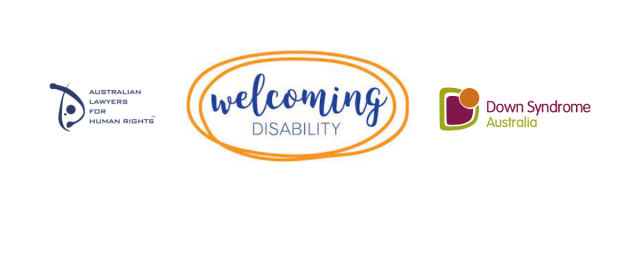Review findings expose urgent need for reform of Australia’s discriminatory, outmoded and out of step Migration Health Requirement

Welcoming Disability, a group supported by more than 100 organisations and experts, holds significant concern that the findings in the recently released Report on the Department of Home Affairs Review of Australia’s migration health requirement fall well short of what is needed.
Darryl Steff, CEO of Down Syndrome Australia says:
“It is disappointing that there continues to be no clear commitment to, nor timeline for, the urgent reforms needed to address the deeply harmful and discriminatory impacts that current law and policy settings have on people with disabilities and health conditions. It is abundantly clear that Australia’s migration health requirement is out of step with community expectations, comparable democracies and Australia’s human rights obligations, and we call on the Australian Government to address this as a matter of urgency.”
While the Report contains nine findings with eleven proposed actions, Mr Steff says,“Disappointingly, six of these actions have no timeframe for completion and are identified as “Requiring Government consideration” or “Review to be undertaken by the Department.”
Dr. Jan Gothard, Welcoming Disability Migration Policy Advisor says:
“The Minister for Immigration should now immediately commit to a timeline for the implementation of the minimum immediate steps needed after more than a decade of stalling by successive governments.
While the Significant Cost Threshold (SCT) has recently been increased to $86,000, the 10 year cost assessment period for visa applicants must be reduced to a 5 year assessment period, in order to bring Australia into line with comparable democracies such as Canada and New Zealand.
The Government must act to protect Children’s human rights by granting all children with disability or health conditions born in Australia an automatic waiver of the migration health requirement (MHR) and immediately removing “special education” from the SCT.
The SCT should be aligned with official Australian Institute of Health and Welfare data in order to establish an objective, fair and transparent relationship between the average per capita health and community services cost of Australians and the idea that a significant cost must necessarily be greater than this.
Notably, recent media reports highlight the urgent need for the federal government to support state and territory governments in their efforts to recruit migrants to fill skills shortages in vital areas such as health and policing. This requires an urgent streamlining of the current opaque and nonsensical approach to who can apply for health waivers and who cannot.”
Kerry Weste, President of Australian Lawyers for Human Rights (ALHR) says:
“Welcoming Disability further calls on the Minister for Immigration and the Attorney-General to stop ignoring Australia’s international human rights law obligations. The Government must now act on long outstanding United Nations and Joint Standing Committee on Migration recommendations, as well as recent Disability Royal Commission Recommendations, all of which have called on Australia to review and remedy its discrimination against migrants with disabilities and health conditions.
Furthermore, it’s time for the Government to stop reducing people to a fiscal number and failing to acknowledge the value of the immense economic and social contributions that people with disabilities and health conditions and their families make throughout Australia every single day. The notion that people with disabilities or health conditions do not live full lives, contribute less to our society and are a net burden reinforces the widespread stigma and discrimination that they already face. It is archaic and degrading.”
The time for considering recommendations that have been continuously made for many years at an international and domestic level is over. The Government must act to bring the Migration Health Requirement into line with comparable democracies, human rights law, and the Australian community’s expectations.”
Welcoming Disability made 8 key recommendations in its submission to the Review.
Media Inquiries: welcomingdisability@alhr.org.au



